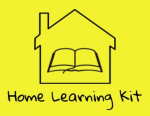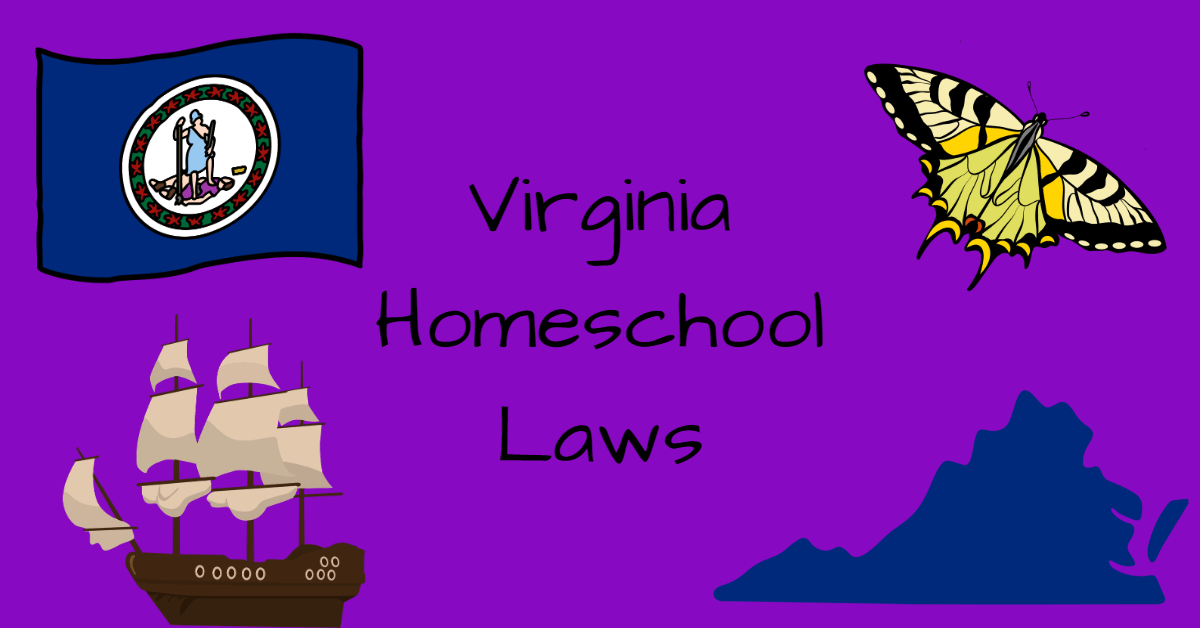Updated for the 2024 – 2025 school year.
Below is a summary of Virginia Homeschool Laws to help you ensure your homeschool is compliant.
Looking For Another State? (Click to Drop Down)
Alabama – Alaska – Arizona – Arkansas – California – Colorado – Connecticut – Delaware – Florida – Georgia – Hawaii – Idaho – Illinois – Indiana – Iowa – Kansas – Kentucky – Louisiana – Maine – Maryland – Massachusetts – Michigan – Minnesota – Mississippi – Missouri – Montana – Nebraska – Nevada – New Hampshire – New Jersey – New Mexico – New York – North Carolina – North Dakota – Ohio – Oklahoma – Oregon – Pennsylvania – Rhode Island – South Carolina – South Dakota – Tennessee – Texas – Utah – Vermont – Virginia – Washington – West Virginia – Wisconsin – Wyoming
Note: The information below is not to be considered legal advice. I’m a homeschool mom with an interest in helping you, not a lawyer. I strongly recommend that you contact your state education department if you have questions specific to your circumstances.
Homeschool
Virginia has requirements for your qualifications as a parent-teacher, notifications, assessing your child’s progress, and instruction time.
Can I Teach?
You must meet one of the four criteria below in order to homeschool your child:
- Hold a high school diploma or higher credential
- Hold a teaching license in Virginia
- You use a curriculum delivered through a correspondence course or distance learning program
- You provide other evidence that you are able to provide an adequate education for your child
Do I Have to Notify the State?
Yes. You must notify your local school division annually of your intent to homeschool by August 15th. The Virginia Department of Education provides a Sample Notice of Intent to Provide Home Instruction for your reference.
The Virginia Department of Education also has a Public School Division Directory for your reference.
Progress Assessment
Virginia requires that you submit evidence of your child’s progress by August 1st of each year following the completed school year. Your options include:
- A nationally normed standardized achievement test in which your child has scored in or above the fourth stanine. This basically means a high average to above average score.
- An evaluation letter from a person familiar with your child’s academic progress who is a teacher certified in any state or who holds a master’s degree in an academic discipline.
- A report card or transcript from a correspondence school or college.
How Many Days a Year do I Have to Teach?
You must provide 180 days of instruction each year, consisting 990 hours. This works out to Five and a Half hours per school day.
I strongly recommend you keep attendance in case it’s needed by the Department of Education or for something like college applications.
Compulsory Attendance Age
The compulsory attendance age is the age range in which your child must be attending school of some type.
In Virginia, if your child turns 5 years old before September 30th, they must be enrolled in school that year until they are 18 years old or graduate.
Public School Sports
The Virginia High School League does not allow homeschool students to participate in its activities. It’s unclear if there’s a possibility to be eligible if your child enrolls in some classes in a public school.
Contact your local school for more information on if it’s possible.
Wrapping Up
Hopefully this summary of Virginia Homeschool Laws gets you started on your homeschool journey with your family!
If you’re just getting started, you’re probably feeling a bit overwhelmed.
The Home Learning Kit can help!
It’s a package of handy learning tools to make your homeschool more fun and engaging, curated by yours truly. Check it out!


